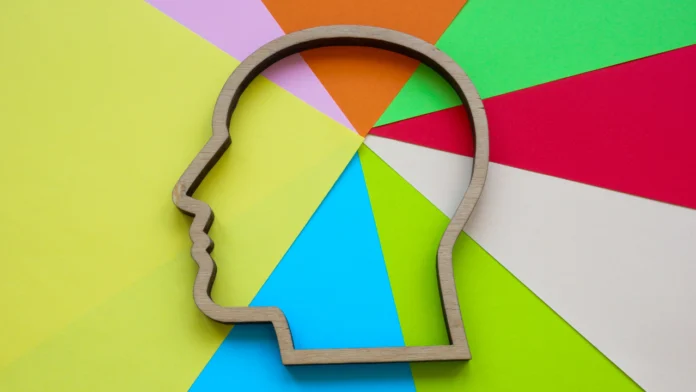What Is Cognitive Behavioral Therapy?
Cognitive behavioral therapy, or CBT, is a type of evidence based psychotherapy used to treat disorders involving mental health, substance misuse and chronic pain. It is based on the theory that thoughts influence feelings and behaviors. This type of therapy teaches you to change negative thought patterns to improve overall well-being.
It is a form of talk therapy used by a licensed mental health or substance use professional in either individual or group counseling. It has been studied for decades and proven to work to reduce adverse psychological and physical health symptoms.
Therapy.com is user supported. We receive a commission fee from purchases made through BetterHelp links.
Learn More
CBT helps you understand the relationship between your thoughts (cognitive), feelings and behaviors (behavioral). It is the leading type of therapy today. CBT and its numerous sub-therapies have been shown to improve positive outcomes in many mental health conditions including anxiety, depression, pain and recovery from alcohol and drug addiction.
CBT reduces painful symptoms while teaching skills to help you succeed professionally, academically and socially. It is a structured, goal-oriented therapy that teaches you to recognize and change negative thought patterns. You learn how to pay attention to and identify incoming negative thoughts, replace them with positive or realistic thoughts and avoid decisions that lead to negative behaviors.
CBT is not cognitive or behavioral therapy; it is a combination of the two. Cognitive therapy focuses on automatic thoughts that may not be true, distortive thinking and underlying beliefs, such as worrying over unrealistic scenarios. Behavioral therapies focus on modifying harmful behaviors. When combined, this type of therapy is effective in treating numerous mental illnesses.
How Does CBT Work?
Cognitive behavioral therapy gets you out of the unhealthy cycle of negative thoughts and behaviors and teaches you valuable coping skills to help you overcome symptoms that may be interfering with your ability to function. Your therapist may choose from many sub-therapies that can be tailored to your needs, such as the following methods:
Cognitive Restructuring
You may benefit from cognitive restructuring if you assume the worst, overgeneralize or only think in black and white. Negative thoughts can trap you into a cycle that makes you believe your thoughts are accurate. Those thoughts lead you to act in ways that are unhealthy.
Cognitive restructuring involves reflecting on your thoughts, analyzing them and finding a way to make them less negative.
For example, someone may tell themselves they are useless because they can’t lose weight, and then they give up trying to lose weight. However, when the statement is restructured to “I can lose weight once I find the right program,” they have hope and will continue searching for the best program.
Exposure Therapy
Exposure therapy works exceptionally well for people who have phobias, like being scared of spiders, flying or leaving home. With exposure therapy, your therapist will help you confront your fears by slowly reintroducing things to you and teaching you how to cope.
For example, if you are afraid of snakes, your therapist will expose you to being around a snake in small increments. One week, you may be in the same room with a snake, but not near it. You may move closer to it the following week until your fears of the snake diminish.
Exposure therapy is also beneficial in treating various types of disorders. These include panic disorder, social anxiety disorder, obsessive-compulsive disorder, PTSD and many anxiety-related disorders.
Therapy.com is user supported. We receive a commission fee from purchases made through BetterHelp links.
Learn More
Guided Discovery
Through guided discovery, a therapist will examine your viewpoint and challenge your negative thoughts by asking you to prove them true. Ultimately, this will help you change unrealistic thoughts and develop a new perspective.
For example, if you think you are the worst performer at work and don’t deserve a raise, your therapist will ask for evidence of your poor performance. They will challenge why you think you don’t deserve a raise based on what it takes to get a raise within your company.
Progressive Relaxation
Stress reduction and relaxation are therapeutic ways to reduce unwanted and negative thoughts that can make you feel out of control. Your therapist will teach you relaxation techniques like deep breathing, meditation and muscle relaxation.
For example, if you feel anxious and are having signs of a panic attack, you can learn how to implement relaxation techniques to calm yourself and avoid unnecessary stress.
CBT for Specific Conditions
A therapist will choose specialized CBT treatments based on your specific condition. Many mental health disorders benefit from CBT, including ADHD, insomnia and trauma-related conditions.
Cognitive Behavioral Therapy for ADHD
Cognitive behavioral therapy for ADHD helps with focus, impulse control and emotional regulation in people diagnosed with attention deficit hyperactivity disorder (ADHD). They struggle to concentrate for long periods, act without thinking first and have difficulty regulating emotions. CBT interventions may include the following:
- Behavioral charts at home and school
- Time management
- Stress management
- Cognitive restructuring
- Guided discovery
Dividing large tasks into smaller steps may also be part of CBT for ADHD since it can be overwhelming to look at the whole picture. Instead of shutting down and not completing the task, it is easier to break it down and work on it in individual parts.
Therapy.com is user supported. We receive a commission fee from purchases made through BetterHelp links.
Learn More
Cognitive Behavioral Therapy for Insomnia (CBT-i)
Many doctors prescribe medications to help patients cope with insomnia. However, this doesn’t solve the underlying problem. It also may not help them get quality sleep.
Cognitive behavioral therapy techniques that are designed to improve sleep without medication may include the following:
- Sleep consolidation limits the time you spend in bed trying to fall asleep.
- Stimulus control teaches you to use your bed only for sleep, not for using electronics, watching TV, eating, or other activities that keep you awake.
- Cognitive restructuring helps you change your negative thoughts about trying to sleep.
- Sleep hygiene refers to following guidelines that promote quality sleep habits.
- Relaxation techniques help you quiet the mind and calm the body so you can fall asleep more easily.
Getting restorative sleep is crucial to overall well-being. Cognitive behavioral therapies for insomnia can help you regain the ability to fall asleep and stay asleep.
Trauma-Focused Cognitive Behavioral Therapy (TF-CBT)
A specialized approach for PTSD is beneficial for children and adults who are dealing with the effects of trauma. Specific TF-CBT therapies that aid recovery include the following:
- Gradual exposure
- Relaxation techniques
- Skill-building
- Parental involvement in therapy for children with PTSD
- Psychoeducation
- Affect modulation skills
- Cognitive processing
- Enhancing safety
TF-CBT can be applied to help individuals overcome all types of trauma, including abuse of any kind, loss of a loved one, loss of a job, or accidents and injuries. If left untreated, symptoms of PTSD could become unmanageable and interfere with how you function at work, home, school, or socially. This makes TF-CBT an important tool for recovery from traumatic situations.
FAQs
Cognitive behavioral therapy is a treatment that helps you stop negative thought patterns and replace them with positive ones. Doing so will change unhealthy behavior patterns and lead to better decision-making.
Trained therapists will engage you in various CBT methods that meet your needs. You can meet one-on-one with a therapist, which may feel like a general conversation. However, the therapist will introduce techniques to help you identify and change negative thoughts. CBT may also involve learning new skills or improving skills you already have.
While there are numerous CBT techniques, standard methods include cognitive restructuring, exposure therapy, mindfulness, stress management, time management, guided imagery, trauma-focused treatment, skills training and role-playing.
Yes, many effective cognitive behavioral therapy techniques can help with ADHD, including time management, organizational skill building, cognitive processing, impulse control and behavior modification plans.
Trauma-focused cognitive behavioral therapy is a specialized treatment that helps someone confront and overcome the trauma they experienced. Depending on the type of trauma, strategies such as exposure therapy, relaxation techniques, cognitive processing and enhancing safety can be beneficial.
Therapy.com is user supported. We receive a commission fee from purchases made through BetterHelp links.
Learn More
Is CBT Right for You?
Wondering if CBT is the right treatment for you? First, it is essential for a licensed mental health professional trained in CBT to evaluate you.
Those who benefit the most from CBT are children, adolescents, adults, couples and families with mental health symptoms that are interfering with their ability to function. These include:
- Depression
- Anxiety
- Post-traumatic Stress Disorder (PTSD)
- Attention Deficit Hyperactivity Disorder (ADHD)
- Sleep disturbances
- Eating disorders
- Obsessive-compulsive disorders (OCD)
- Substance use disorders
CBT was founded in the 1960s and has been extensively researched. It is more effective than medications in some instances. CBT is the most used type of therapy nationwide and is considered superior to other forms of treatment.
CBT trained therapists list their specialties in their biographies online and in handouts promoting their work. When you find one specializing in your issues, you must contact them and schedule an evaluation.
During the assessment the therapist will ask about your symptoms and how they affect your life. Once the evaluation is complete, they will discuss various treatment options. Together you will create a treatment plan.
Finding a CBT Therapist
Our database of providers is set up to easily find CBT therapists across the nation.
Therapy.com is user supported. We receive a commission fee from purchases made through BetterHelp links.
Learn More
Don’t be afraid to call and ask them questions such as whether they specialize in treating your condition. Therapists expect this and want to ensure you receive the best help, even if that means it is not with them.
What to Expect in a CBT Session
CBT sessions may feel like you are just talking casually with your therapist. They will ask questions and allow you to expound on them. It is essential to be honest with your therapist to receive proper treatment. They can answer any question including “What is cognitive behavioral therapy?”
Sessions usually last about an hour and meet weekly until you have reached your treatment goals. The number of weeks will vary for each person. Some sessions may consist of only talking, while others may include activities to improve your skills, such as relaxation techniques, exposure therapy, journaling or role-playing.
Online vs. In-Person CBT Options
CBT is versatile and effective in both online and in-person therapy sessions. Online CBT involves logging on to a computer from home or another private space. You will then log into your therapist’s secure site and use video to communicate. In-person CBT takes place at your therapist’s office. Individual and group CBT are as effective online as in-person, with many benefits.
If you are ready to see if CBT can help resolve your mental health symptoms, contact us today. You can also call our treatment team which is available 24/7. They can connect you directly with a CBT-trained provider specializing in your issues.
Therapy.com is user supported. We receive a commission fee from purchases made through BetterHelp links.
Learn More




